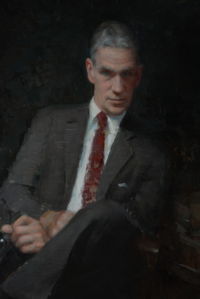CHARLES NESSON: I start from a presumption of liberty. Think of the founders of our nation. They assembled as people who had the liberty to create a government. They knew that historically all governments reflect their own self-interest and come over time to limit, if not destroy the collective power of the people. They believed that a government built of checks and balances would ensure protection of their (and our) liberty into the future.
One method for doing this was to provide that the government must present its case for taking away a citizen’s liberty to a jury of peers, and that the jury must unanimously agree to a general verdict of guilt as warrant for the State to take his liberty. The jury will endure as a bulwark so long as it decides the whole case — the law and the fact. When all other balances fail, the jury will remain as the last protection of liberty.
In a criminal prosecution the legislature must first pass a statute that defines a crime. The executive must then choose to enforce the statute by formally charging and proving a statutory violation. Finally the judiciary must oversee the trial of the charge to make sure the statute is constitutional and the process of proof completely legal. Thus the state”s claim to take the liberty of a citizen is presented to a jury of the people. WE the PEOPLE. The jury is us, so that our values of liberty and justice will be preserved into the future against the state.
I want to make a doctrinal point exposing the flaw in the legal argument used by the judiciary to take away the jury’s power to decide “the whole case, the law and the fact,” thereby reducing the jury’s role to that merely of factfinder. “Law” used in describing the jury’s role means justice in the sense of connection with the conscience of community. The judges who created the current doctrine of jury nullification read “law” to mean the formal law created by the State, e.g., legislation, common law, judicial precedent. In claiming for themselves in a dichotomy between judge and jury of “law” and “fact” the prerogative of authoritatively articulating such matters of legality they left the jury only with “fact” and took the jury’s justice function away.
The judges did this in the 19th century in dispute as to whether lawyers could continue the established practice of arguing unconstitutionality of statutes to the jury despite the trial judge’s ruling that the statute was constitutional. Judges decided that lawyers may not re-argue their legal rulings to the jury because it is the judge’s business, not the jury’s, to decide matters of law. But in every case, the ruling was based upon the judges power to decide constitutionality and other legal matters. It resolved the question insofar as it applied to constitutional matters, statutory interpretations and evidentiary rulings — matters of legality. But it did not address, nor did it justify, the claim that juries had no business deciding “law” in the more fundamental sense.
Even after the “legalities” have been articulated by the judge to the jury, the jury hears and must accept the interpretation of the law of the state that the judge puts upon it, the jury nonetheless retains the essential independent function and responsibility of deciding whether to apply the state’s law to the defendant before them. That is the jury’s constitutional function. That is its protective check and balance versus the state’s power to deprove a citizen of liberty. To take this funtion away diminishes, even obviates, the jury’s function as the last bulwark of liberty.
All right, that’s my ten minutes. I’d be delighted with any and all comments.

1 Response to “Re-Empowering Juries”